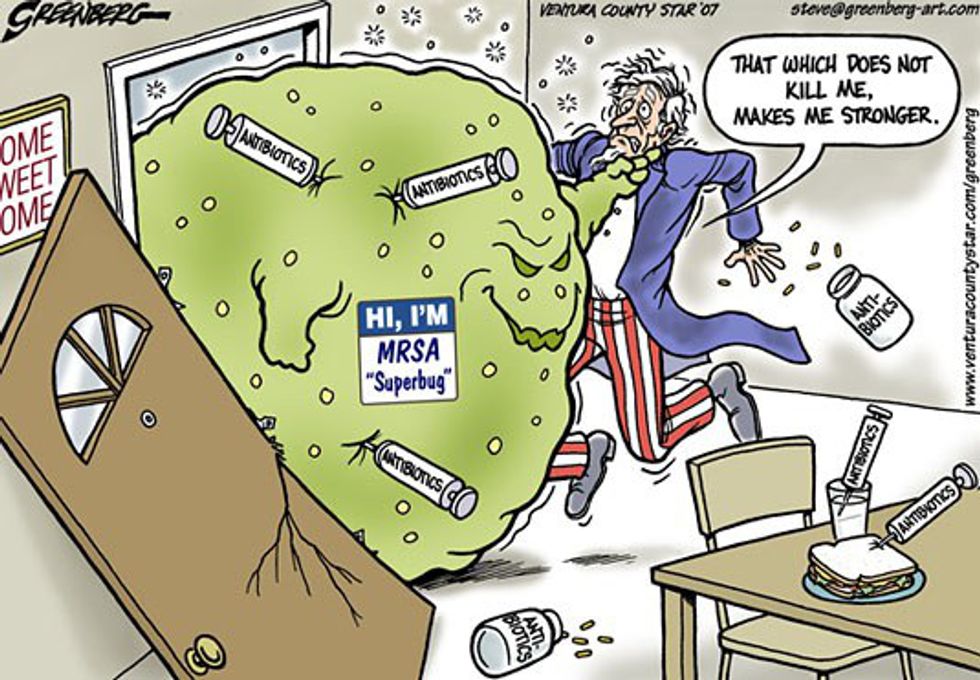Imagine a world where a simple paper cut could leave you fighting for your life. Where the most basic operations, like getting an appendix removed or a hip replacement, could become deadly.
Where cancer treatments and organ transplants could kill you, and childbirth could once again become a deadly moment in a woman's life. This could be our future; a future without antibiotics.
"We are in a post-antibiotic era," World Health Organization chief Margaret Chan declared earlier this year.
Her warning echoed a recent report that found antimicrobial resistance was responsible for more than 700,000 deaths worldwide in 2014 alone and could kill more than 10 million people each year by 2050.
Despite previous warnings, antibiotic use in humans and livestock continues to grow in many countries. Scientists say misuse and overuse of the drugs are two of the main contributors to resistance.
In the U.S. alone, 70 percent of antibiotics that are medically useful to humans are given to animals instead, and not just for treating disease but for promoting growth or compensation for poor farming practices.
Economist Jim O’Neill, a key researcher in the report on antimicrobial resistance, gives recommendations in the study that focus on reducing the wasteful use of our existing arsenal.
One of the first steps that need to be done is to improve sanitation. For richer countries it’s to reduce infections in hospital settings, and for poorer countries, it's ensuring clean water and overall better sanitation.
We also need a global surveillance network to understand the extent to which antibiotics are being used, the effectiveness of different bug/ drug combos and the spread of resistant microbes as well as the genes behind their powers.
A lot of human antibiotic use is wasteful too, not just the aforementioned agricultural use. Of the 40 million people who get antibiotics in the U.S. every year, only 13 million actually need them; the rest have viral infections and cannot be treated with drugs.
Due to this, a large public-awareness campaign would help. Many people don’t know how antibiotics work and can’t distinguish between bacterial and viral infections.
We can also begin to lift the pressure on antibiotic supply by promoting effective alternatives like vaccines, probiotics (beneficial bacteria), phages (bacteria-killing viruses), and immunotherapies (substances that stimulate the immune system).
Trying out these measures depend on scientists and doctors who specialize in infectious disease. Unfortunately, of the 25 main medical specialties in the U.S., infectious disease is the lowest paid and among the most unpopular.
Lastly, the report recommends creating a global innovation fund for early-stage research that complements a solution to also set up market-entry rewards.
Companies need to be rewarded for developing drugs rather than just selling them—or even insteadof selling them. Antibiotic resistance is a problem when there has not been a new class of antibiotics discovered since the 1980s.
This is a problem that requires a worldly effort from various leaders around the world and is not one that can be solved overnight.
It is crucial we try to tackle this multi-faceted issue as best we can. The way to begin is by awareness.
Let’s not steer our own future to turmoil by blindly succumbing to ignorance.


























